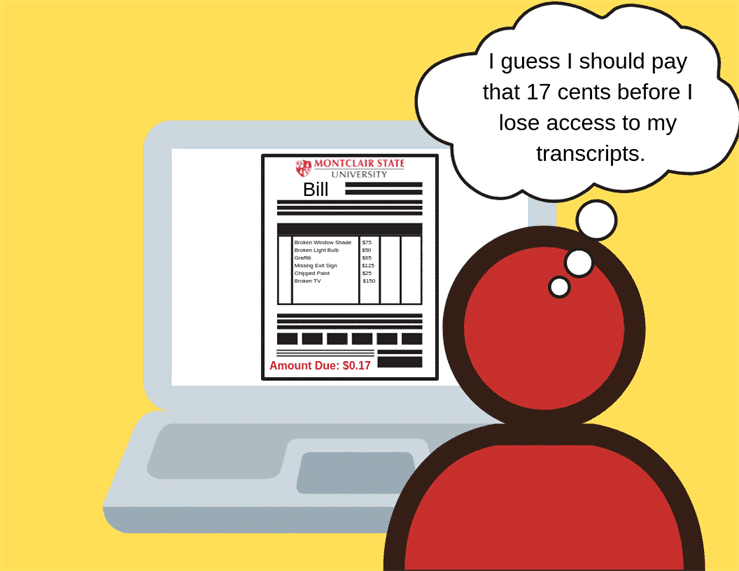It is the end of February and, as always, on-campus residents at Montclair State University are awaiting the monthly emails from Residence Life in regards to the building damages made in the past few weeks.
Every month, resident assistants and other representatives from each building search all of the lounges, public restrooms and other common areas in each residence hall to make note of any forms of misconduct or damage. Damages can include broken window shades or light bulbs, theft and vandalism.
When an individual causes damage to any public part of the residence hall, the entire living community is notified about it and given a charge for the damage unless the person responsible comes forward. The cost of the damage can range depending on what and where it occurred.
In some cases, these charges are less than a dollar if the entire building or floor is held responsible. However, if it happens in a specific section of a building, the cost increases and can stir up trouble with student accounts, withholding access to grades and even registration.
Many students believe the urgency to take care of these small charges is unnecessary and in some situations they think taking care of them is hard to fit into their schedules. In order to pay off these charges, students are forced to hike over to the cashier’s window at Red Hawk Central or face an extra credit fee.
From the students’ perspective, losing access to final grades for a small fee is not realistic, but if students don’t plan enough in advance and take care of them right away, the charges can begin to pile up and it could be enough to lock them out of registering for classes.
While students living on campus should be held responsible for the damages caused in their residence halls, it should not have to cause students to immediately rush over to Red Hawk Central each month to pay off five cents just to see their final grades.
If the damage fees are significant, then they should be taken care of as soon as possible, but the fact that students are quickly being penalized for having a hold on their accounts for less than a dollar is just an additional problem they shouldn’t have to deal with.
There are ideas in which students can pay off the building damages and not have to worry about losing access to parts of their NEST accounts. One way to prevent this is an extra deposit that would be set aside for small damage fees.
Every year on the first day of March, all students planning to live on campus during the following academic year are required to pay a $300 deposit so they can select their living spaces in April before fully paying for housing over the summer.
Some students believe an extra deposit should be added to the total housing rates at Montclair State so it would cover the costs of damages that may occur throughout the year. This way it takes away the stress of paying them off in time.
If the full amount is not used during the academic year, students should be reimbursed whatever is left over.
By creating a small fund dedicated to building damages, many on-campus residents believe it can eliminate the frequent trips to Red Hawk Central and the urgency to clear any holds before course registration.



